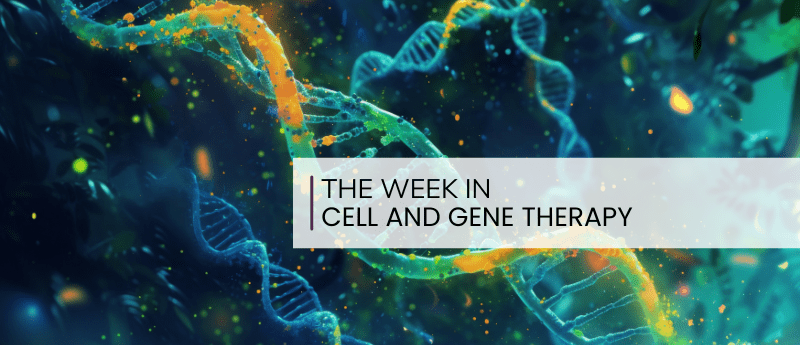AI in Precision Medicine: Unleashing the Power of Personalized Healthcare

For decades, healthcare has largely relied on a “one-size-fits-all” approach. Doctors diagnose and treat patients by drawing on both a patient’s symptoms and their established medical expertise. However, this approach often overlooks the unique biological makeup and environmental factors that influence how diseases manifest in individuals. This is where Precision Medicine steps in, offering a revolutionary shift towards personalized healthcare tailored to your specific needs.
Precision Medicine leverages a powerful combination of advanced technologies, including Artificial Intelligence (AI), to analyze vast amounts of patient data. This data can include genetic information, medical history, environmental factors, lifestyle choices, and even details from wearable health trackers. By analyzing these intricate details, AI empowers healthcare professionals to:Uncover the underlying cause: Move beyond simply treating symptoms and delve deeper to identify the root cause of a disease based on an individual’s unique genetic makeup.
Predict disease risk: AI algorithms can analyze patient data to predict their susceptibility to certain diseases, allowing for preventive measures and early intervention strategies.
Develop personalized treatment plans: By understanding a patient’s specific response mechanisms, doctors can create treatment plans with medications and therapies most likely to be effective and minimize side effects.
AI serves as the engine driving the transformation towards Precision Medicine. Delving deeper, let’s explore how AI’s capabilities are revolutionizing healthcare:Unveiling the secrets of the genome: AI excels at processing and analyzing complex genetic data. It can identify variations in genes that may influence an individual’s susceptibility to certain diseases or predict their response to specific medications. This information is crucial for developing targeted therapies with minimal side effects.
Revolutionizing diagnostics: AI algorithms can analyze medical images with unmatched precision, leading to earlier and more accurate diagnoses. Machine learning techniques are constantly evolving, allowing AI to learn and refine its diagnostic capabilities over time. For instance, AI-powered systems are being used to analyze mammograms and identify subtle signs of breast cancer that might be missed by the human eye.
Optimizing treatment strategies: AI can analyze a patient’s unique data profile, including their genetic makeup, medical history, and lifestyle choices, to predict how they might respond to different medications or therapies. This empowers doctors to create personalized treatment plans that are more likely to be successful for the individual patient. For example, in oncology, AI can analyze a patient’s tumor mutations and recommend targeted therapies that specifically address those mutations.
From Bench to Bedside Faster: AI Technologies Aim to Reduce the Time and Financial Burden of Drug Development. AI is transforming this landscape by analyzing vast molecular libraries and identifying potential drug candidates with higher efficacy and fewer side effects. AI can also predict how a drug might interact with a patient’s unique genetic makeup, allowing for the development of personalized medicine approaches.
The integration of AI in Precision Medicine offers a multitude of benefits for patients, healthcare providers, and the healthcare system as a whole:Improved patient outcomes: With treatments tailored to individual needs, patients are more likely to experience better outcomes, including improved disease management, reduced side effects, and a higher quality of life.
Reduced treatment costs: By identifying the most effective treatments for each patient, Precision Medicine can avoid unnecessary medications and procedures, leading to significant cost savings for healthcare systems. This allows for more efficient allocation of resources and improved affordability of healthcare.
Early disease detection: AI-powered diagnostics can detect diseases at earlier stages when they are easier to treat. This translates to a better chance of successful intervention and improved patient prognosis. Early detection of diseases like cancer can significantly increase survival rates.
Proactive healthcare management: AI can analyze patient data to predict potential health risks based on their individual profile. This allows for preventive measures and early intervention strategies, promoting a more proactive approach to healthcare management. For example, AI can identify individuals at high risk of developing cardiovascular disease and recommend lifestyle changes or preventative medications.
Oncology: In the fight against cancer, AI algorithms are assisting oncologists in analyzing complex genetic data to identify mutations driving cancer growth. This information allows for the development of personalized treatment plans, including targeted therapies and immunotherapies tailored to the specific cancer type and the patient’s genetic makeup.
Cardiology: AI is being used to analyze heart scans and predict a patient’s risk of developing heart disease. This information can be used for early.
AI for Mental Wellness: Chatbots powered by artificial intelligence are being developed to deliver initial mental health screenings and provide patients with support and resources. These chatbots can help bridge the gap in access to mental health professionals, particularly in underserved areas. Additionally, AI algorithms are being explored to analyze language patterns and social media activity to identify individuals who may be at risk for developing mental health conditions, allowing for early intervention and support.
Neurology: AI is being used to analyze brain scans and improve the diagnosis of neurological disorders such as Alzheimer’s disease and Parkinson’s disease. Early and accurate diagnosis is crucial for managing these progressive conditions and developing personalized treatment plans to slow their progression.
Infectious disease: During the COVID-19 pandemic, AI played a crucial role in analyzing vast amounts of data to track the spread of the virus, identify potential at-risk populations, and accelerate vaccine development. AI continues to be used for ongoing research into COVID-19 variants and the development of new treatment strategies.
Event : International Top Pharmaceutical Awards
Award Nomination: x-i.me/tpanom
Award registration: x-i.me/awrdreg
Member Nomination: x-i.me/tpmem
Member Registration: x-i.me/tpmem
For Enquiries: pharmaquerys123@gmail.com
Get Connected Here
------------------------------
Twitter: x.com/TopPharmaaward
Instagram: instagram.com/toppharma23/


Comments
Post a Comment